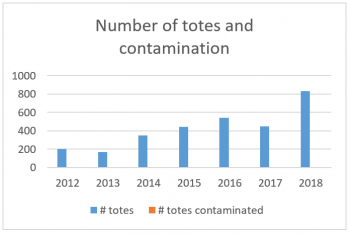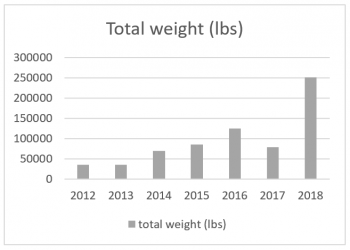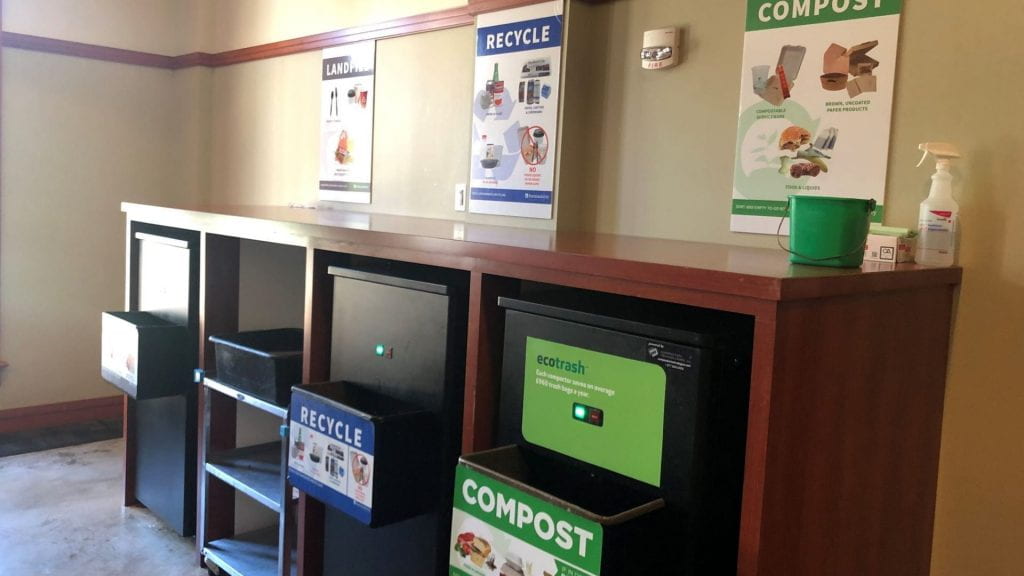With the start of classes this August, WashU Dining Services quietly rolled out a simple and straight-forward response to a long- requested service by dining customers – students, staff and faculty alike. On either side of the dish return window, the waste storing holes which previously offered recycling and landfill now have two holes each dedicated to compostables: food, napkins and to-go boxes.
One of the most public-facing and high-volume serveries on campus, the Danforth University Center welcomes prospective students, alumni, and other guests, in addition to the regular WashU community. While compost has been collected in high volumes from the kitchen since the start of composting on campus in 2012, there has been hesitance to add post-consumer compost collection, mainly due to the low tolerance for contamination from things like plastic utensils, condiment wrappers, and beverage containers.
However, the DUC initiative is rolling out as compost efforts ramp up in other areas of the campus: Residential Living has operationalized composting on the S40, the new Parkside Café opened its doors with an emphasis on dine-in reusable dishes and post-consumer compost collection, and the Mildred Lane Kemper Art Museum will offer compost collection at events in the Museum space and in their forthcoming Coffee Bar. Attention to minimizing landfill waste rolls all the way up to the Chancellor’s office, as the highest profile events of the year – the East End Transformation Dedication and Chancellor Martin’s Inauguration – have prioritized and practiced environmental sustainability throughout the event planning process as the university prepares to host these two spectacular events.
In advance of offering post-consumer composting at the DUC, a significant increase in compost collection has been documented, with a 220% increase by weight and an 85% increase by volume since 2017. No contamination (rejected containers) have been documented, which is common when only kitchen waste is collected. This growth in the program and success in composting correctly is thanks to the excellent training and enthusiasm of the staff who work in the DUC. It will be up to the diners to continue this trend of composting often and sorting properly. Active participation will ensure success!


Composting and recycling at dining locations and residential halls must not overshadow the need to reduce our individual waste overall. It is far more important to opt for reusables – plates, water bottles, cups, straws and utensils – whenever possible to reduce our overall daily waste. Bring your own or specifically request dine-in options.
If you would like to be a part of the educational outreach campaign to encourage people to sort their waste properly at the DUC (and across campus), fill out this form to become trained as a Recycling Genius and receive notification for opportunities to spread the word.
